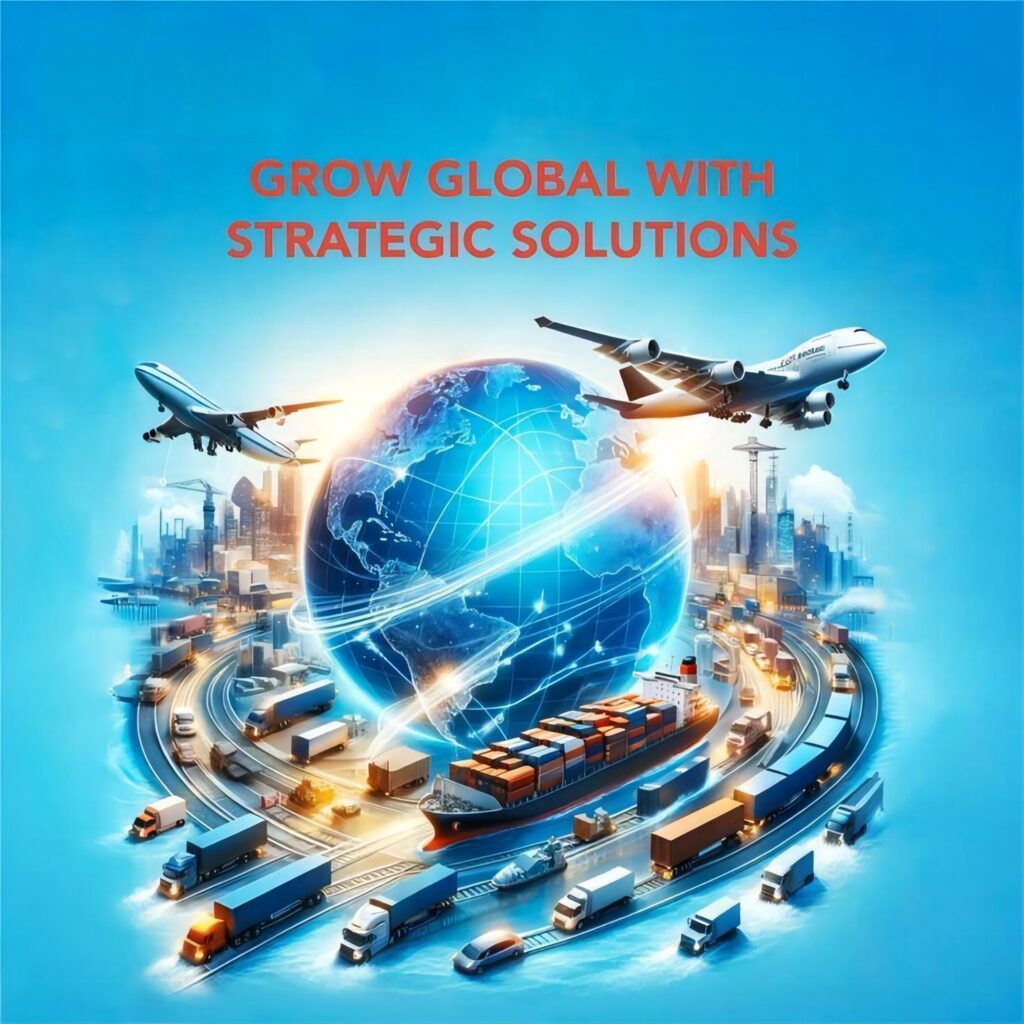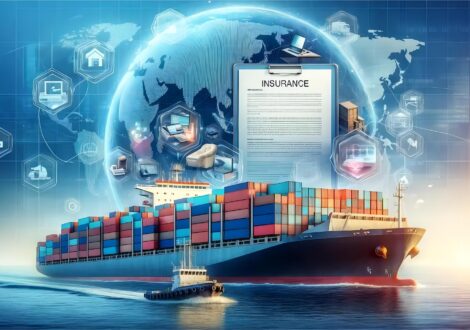- By TOP CHINA FREIGHT
- February 18, 2025
- Term

Enhancing International Freight Efficiency: Smart Solutions and Global Logistics Optimization
In the fast-paced world of global trade, the efficiency of international freight plays a crucial role in determining a company’s ability to remain competitive, meet customer demands, and control operational costs. With the rise of e-commerce and the constant expansion of global markets, optimizing international freight logistics has never been more important. This article explores how smart solutions and global logistics optimization can elevate freight efficiency, lower costs, and improve customer satisfaction.
1. The Role of Smart Freight Management Systems
A key factor in enhancing international freight efficiency is the integration of smart freight management systems (TMS). These systems leverage artificial intelligence (AI), machine learning (ML), and big data to make data-driven decisions for optimal route planning, resource allocation, and cost reduction.
Benefits include:
- Real-Time Data: Access to live traffic, weather, and supply chain information allows for dynamic route optimization.
- Predictive Analytics: TMS systems can forecast shipment demand, helping to reduce empty miles and ensure better resource utilization.
- Improved Efficiency: These solutions streamline the entire logistics process, improving on-time delivery and reducing operational overhead.
By embracing these technologies, businesses can boost productivity and maintain flexibility, adapting quickly to changes in demand and environmental factors.
2. Automation in Warehousing and Sorting
Automating warehousing and sorting systems reduces human error, increases operational speed, and maximizes warehouse space. Automated solutions, including robotic sorting systems and AI-powered inventory management, enable fast and accurate processing of goods from origin to destination.
Key Advantages:
- Speed and Accuracy: Automation reduces delays in inventory handling and ensures products are quickly prepared for shipment.
- Space Optimization: Smart systems manage inventory storage, increasing warehouse capacity and optimizing space usage.
This efficiency boost translates directly into faster turnaround times and lower costs, ultimately improving the entire freight journey.
3. Real-Time Tracking and Transparency
As customer expectations for transparency and real-time updates increase, implementing real-time tracking and monitoring systems becomes essential. IoT (Internet of Things) sensors provide constant data on the location and condition of goods, ensuring that shipments are on track and in good condition.
Benefits:
- Increased Visibility: Real-time tracking lets customers and businesses monitor shipments, reducing anxiety and improving satisfaction.
- Faster Problem Resolution: Instant alerts on delays or issues allow for quicker decision-making and problem resolution.
- Enhanced Trust: Providing customers with transparency in the shipment process builds confidence and loyalty.
Real-time tracking is particularly critical in industries where product conditions (temperature, humidity, etc.) are crucial to maintaining quality.
4. Smart Customs Solutions for Faster Cross-Border Freight
Customs clearance is a key aspect of international freight, often causing delays in the shipping process. Traditional, paper-based customs procedures can slow down the movement of goods. However, with the rise of smart customs solutions, businesses can reduce clearance times significantly.
Key Features:
- Automated Customs Declarations: Using AI-powered platforms to handle paperwork and automate customs declarations ensures compliance and accelerates processing.
- Electronic Platforms: These platforms integrate customs data in real-time, enabling faster inspections and approvals.
- Reduced Human Intervention: Minimizing manual steps reduces errors and speeds up the overall process.
Smart customs solutions help businesses maintain a smooth flow of goods across borders while avoiding unnecessary delays, optimizing international shipping.
5. Sustainable Logistics for a Greener Future
Sustainability is an increasingly important consideration in the logistics industry. Green logistics solutions, such as electric vehicles, hybrid transportation options, and optimized routes, can significantly reduce the environmental impact of international freight.
Key Strategies:
- Eco-friendly Transport: Electric and hybrid vehicles, as well as alternative fuels, contribute to reducing emissions and fuel consumption.
- Route Optimization: Using AI to determine the most efficient routes reduces unnecessary mileage and lowers carbon footprints.
- Smart Packaging: Sustainable packaging materials and processes not only reduce waste but also ensure that goods are protected during transit.
Implementing sustainable logistics practices not only supports environmental goals but also enhances operational efficiency and can reduce long-term costs for businesses.
6. Optimizing the Supply Chain for Greater Efficiency
International freight efficiency is not solely about optimizing transportation. The entire supply chain needs to work in harmony to ensure smooth operations. Collaboration between suppliers, shipping companies, and logistics providers plays a critical role in improving global freight efficiency.
Benefits of Supply Chain Optimization:
- Collaborative Platforms: Cloud-based platforms allow for seamless communication and information sharing between partners, increasing operational visibility and improving decision-making.
- Agile Supply Chains: Adapting quickly to disruptions in supply or demand ensures that freight can be rerouted or rescheduled without significant delays.
- Cost Savings: A well-coordinated supply chain reduces unnecessary handling, storage, and transportation costs.
By working together, all parties in the supply chain can ensure the most efficient and cost-effective freight management.
Conclusion: A Future Powered by Smart Solutions
As international freight becomes more complex and global trade continues to grow, businesses must look to smart solutions and optimization strategies to stay ahead of the competition. From AI-powered freight management systems to real-time tracking and sustainable logistics, these technologies are transforming the way goods move around the world.
By leveraging these smart solutions, companies can not only reduce costs but also improve customer satisfaction, enhance sustainability, and increase overall efficiency. The future of international freight is one that embraces innovation, collaboration, and intelligent technology to keep global trade flowing smoothly.






